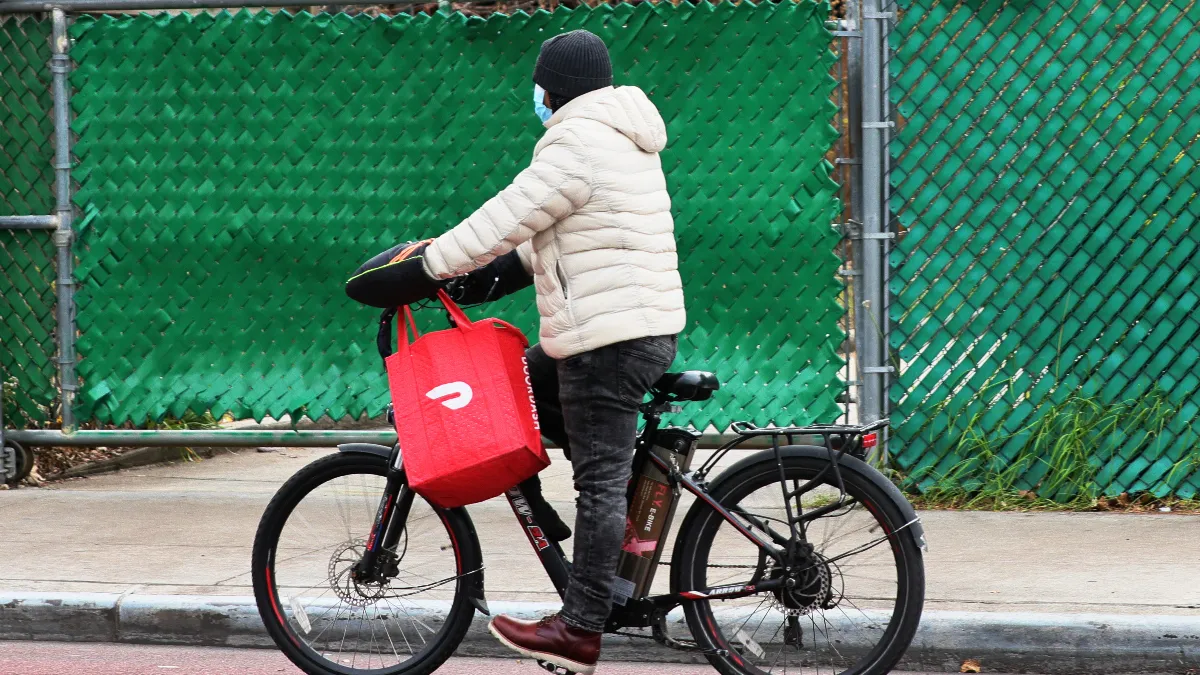Dive Brief:
- DoorDash is making its identity verification procedures for workers more stringent, the company said Thursday.
- The delivery aggregator will require upwards of 150,000 workers to verify their identity each week, and some will be required to verify identities between deliveries.
- DoorDash said the number of workers disqualified from its platform each month for failing identity checks has doubled since last year.
Dive Insight:
DoorDash framed the more stringent labor controls as a way to enhance consumer and merchant safety. Account sharing among drivers has been a challenge the company has stepped up efforts recently to combat.
“People rightly expect us to know who’s at their doorstep or entering their business when they order with us,” said Brad Rosenthal, director of dasher integrity at DoorDash.
DoorDash also said the new procedures would help prevent workers who have previously failed ID checks from rejoining the platform, and that it currently prevents about 4,600 such attempts per week.
The company did not immediately respond to a request to clarify how workers would be selected for stepped-up surveillance or comment on the potential for algorithmic bias.
In addition to those measures, DoorDash is using machine learning technology to flag suspicious worker accounts and subject them to greater identity verification tests. That technology specifically detects anomalous logins, unspecified suspicious activity, and inconsistencies or repetition in account details.
“If we detect a signal, we will require a Dasher to re-verify their identity before they can continue dashing,” DoorDash said in a statement. A human agent will review cases where flagged accounts fail verification.
Currently, workers must submit government identification and pass a background check before they start work. Now, in addition to that requirement, select workers will have to complete a real-time identity check immediately after completing a delivery.
“This new requirement will make our safeguards less predictable and even harder to evade,” the company said.
The feature is live in San Francisco; Orlando, Florida; Seattle; Los Angeles; Yakima, Washington; Denver; Boulder, Colorado; Sacramento, California; Atlantic City, New Jersey; and Fort Myers, Florida. DoorDash will expand the requirements to other cities throughout the course of 2025.















